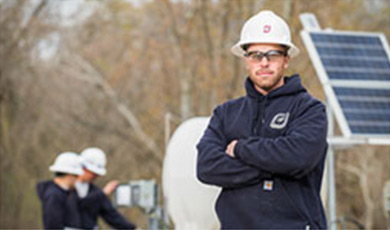- Albanian
- Arabic
- Belarusian
- Bengali
- Czech
- English
- French
- German
- Hebrew
- Hungarian
- Indonesian
- irish
- Italian
- Japanese
- kazakh
- Persian
- Russian
- Thai
- Uzbek
- Vietnamese
Jan . 10, 2025 12:49
Back to list
big wheel ferris wheel
Ferris wheels, an iconic symbol of amusement parks worldwide, offer more than just a leisurely ride. These towering structures captivate the imagination with their engineering marvels and timeless charm. However, for businesses in the amusement industry, the Ferris wheel represents a product fraught with considerations spanning experience, expertise, authoritativeness, and trustworthiness.
Authoritativeness in this context refers to the reputation of both the Ferris wheel's manufacturer and the operators. Establishing authority within the amusement park industry involves selecting a manufacturer known for producing reliable, innovative, and durable rides. Renowned companies typically have a portfolio of successfully installed Ferris wheels around the globe and are often at the forefront of technological advancements in ride safety and rider engagement. For operators, maintaining authority can be achieved through certifications, affiliations with industry bodies, and continuously updating the ride's features and maintenance protocols. This discourse of authority extends to online presence and customer interactions where transparent communication about safety records and innovation is crucial. Trustworthiness is the cornerstone of any attraction open to the public, especially one as visible and conspicuous as a Ferris wheel. Building trust starts with rigorous adherence to safety standards set by international governing bodies and includes regular audits and maintenance checks to ensure every component of the wheel operates flawlessly. Operators must be proactive in addressing potential concerns, whether they stem from mechanical issues or customer inquiries, and provide clear, honest communication. Building trust also involves creating a welcoming environment for riders, ensuring staff professionalism, and implementing feedback systems that encourage guest interaction and improvement. A Ferris wheel, when integrated thoughtfully and managed expertly, represents a multifaceted opportunity to elevate an amusement park's profile. It provides a unique experience that marries tradition with innovation while requiring a foundation built on expertise, authority, and trust. It's not merely a product but an experience and an emblem that, when executed with precision and care, promises joy and wonder for generations. In the competitive sphere of amusement attractions, a Ferris wheel—distinct and well-executed—stands as a testament to a brand's commitment to quality, creativity, and safety. By leveraging these critical components, parks can ensure that their Ferris wheel becomes not just an attraction, but a landmark.


Authoritativeness in this context refers to the reputation of both the Ferris wheel's manufacturer and the operators. Establishing authority within the amusement park industry involves selecting a manufacturer known for producing reliable, innovative, and durable rides. Renowned companies typically have a portfolio of successfully installed Ferris wheels around the globe and are often at the forefront of technological advancements in ride safety and rider engagement. For operators, maintaining authority can be achieved through certifications, affiliations with industry bodies, and continuously updating the ride's features and maintenance protocols. This discourse of authority extends to online presence and customer interactions where transparent communication about safety records and innovation is crucial. Trustworthiness is the cornerstone of any attraction open to the public, especially one as visible and conspicuous as a Ferris wheel. Building trust starts with rigorous adherence to safety standards set by international governing bodies and includes regular audits and maintenance checks to ensure every component of the wheel operates flawlessly. Operators must be proactive in addressing potential concerns, whether they stem from mechanical issues or customer inquiries, and provide clear, honest communication. Building trust also involves creating a welcoming environment for riders, ensuring staff professionalism, and implementing feedback systems that encourage guest interaction and improvement. A Ferris wheel, when integrated thoughtfully and managed expertly, represents a multifaceted opportunity to elevate an amusement park's profile. It provides a unique experience that marries tradition with innovation while requiring a foundation built on expertise, authority, and trust. It's not merely a product but an experience and an emblem that, when executed with precision and care, promises joy and wonder for generations. In the competitive sphere of amusement attractions, a Ferris wheel—distinct and well-executed—stands as a testament to a brand's commitment to quality, creativity, and safety. By leveraging these critical components, parks can ensure that their Ferris wheel becomes not just an attraction, but a landmark.
Next:
Latest news
-
Flume Ride-Hebei Zhipao Amusement Equipment Manufacturing Co., Ltd.|Thrilling Water Attraction&Customizable DesignJul.30,2025
-
Flume Ride - Hebei Zhipao Amusement Equipment | Water Coaster, Thrilling DescentJul.30,2025
-
Flume Ride - Hebei Zhipao | Thrilling Water AttractionJul.30,2025
-
Flume Ride: Thrilling Water Attraction by Hebei Zhipao|Log Flume Manufacturers&Flume Ride DesignJul.30,2025
-
Flume Ride-Hebei Zhipao Amusement Equipment Manufacturing Co., Ltd.|Thrilling Water Coaster, Safe DesignJul.30,2025
-
Flume Ride-Hebei Zhipao Amusement Equipment Manufacturing Co., Ltd.|Thrilling Water Attraction, Safe DesignJul.30,2025
